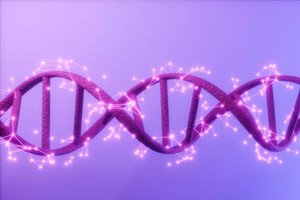
All iLive content is medically reviewed or fact checked to ensure as much factual accuracy as possible.
We have strict sourcing guidelines and only link to reputable media sites, academic research institutions and, whenever possible, medically peer reviewed studies. Note that the numbers in parentheses ([1], [2], etc.) are clickable links to these studies.
If you feel that any of our content is inaccurate, out-of-date, or otherwise questionable, please select it and press Ctrl + Enter.
Scientists find cause and possible treatment for rare autoimmune disease in Puerto Ricans
Last reviewed: 03.07.2025

A rare autoimmune disease with a hard-to-pronounce name may be affecting people of Puerto Rican descent through a newly discovered genetic pathway, scientists associated with the discovery say. The finding, they suggest, could one day help with genetic counseling and treatment for the condition.
The disease is called autoimmune polyendocrinopathy-candidiasis-ectodermal dystrophy, but doctors often use the acronym APECED. People with the disease experience severe autoimmune attacks on the endocrine glands, but the disorder rarely leaves any tissue or organ untouched. Patients are particularly susceptible to infections caused by various species of Candida, the most common fungal pathogen in the world.
APECED is considered not only a rare but also a potentially fatal disease, usually caused by what are called biallelic mutations. This means that mutations are present in both copies of the AIRE gene, one of which is inherited from each parent.
However, a study of 104 patients by scientists at the Laboratory of Clinical Immunology and Microbiology at the National Institute of Allergy and Infectious Diseases (NIAID) in Bethesda, Maryland, identified a small subset of 17 patients with a previously unknown genetic variant that causes the disease. Of those 17 patients, 15 were of Puerto Rican descent.
Discovery of a new genetic mechanism
"APECED is a life-threatening monogenic autoimmune disease," said Dr. Sebastian Ochoa, lead author of the study published in the journal Science Translational Medicine. The AIRE gene (from autoimmune regulator) is the main genetic factor responsible for the disease. But the NIAID team discovered a new mutation that drives the condition.
Mutations in the AIRE gene trigger a cascade of negative events, the most insidious of which is the proliferation of hyperactive T cells. These immune cells, normally formed in the thymus, emerge from it ready for destructive action, attacking tissues, glands and organs.
Symptoms of APECED include skin rashes, hair loss, alternating diarrhea and constipation, kidney problems, Addison's disease (damage to the adrenal glands), tooth enamel damage, and high blood pressure. Dry eyes and keratitis, which can lead to blindness if left untreated, are also common.
In its later stages, APECED can lead to kidney failure, sepsis, and squamous cell carcinoma of the mouth and esophagus. The disorder is quite rare, affecting 1 in 100,000–500,000 people. However, among Finns, Sardinians, and Iranian Jews, the risk is significantly higher, at 1 in 9,000–25,000.
The Puerto Rican Connection and the New Mechanism
Among the Puerto Rican patients, the team found a unique genetic variant in the non-coding RNA of the AIRE gene, likely related to a "foundational variant" brought to the island from the Spanish province of Cadiz.
"Our studies have shown that this variant is the major mutational variant causing APECED in the Puerto Rican population," Dr. Ochoa wrote.
Scientists discovered a cryptic splice site in one of the non-coding introns of the AIRE gene. This site led to the inclusion of a pseudoexon - an abnormal sequence that interfered with the normal formation of messenger RNA (mRNA) and led to the creation of a non-functional protein.
Potential treatment
Using an antisense oligonucleotide, the researchers were able to restore normal splicing and mRNA production. Although more research is needed, this discovery lays the foundation for developing a therapeutic approach.
Conclusion
Ochoa's team's research provides new insights into the genetics of APECED, particularly among Puerto Ricans. These findings could improve genetic counseling, diagnosis, and treatment of this rare but devastating disease.
